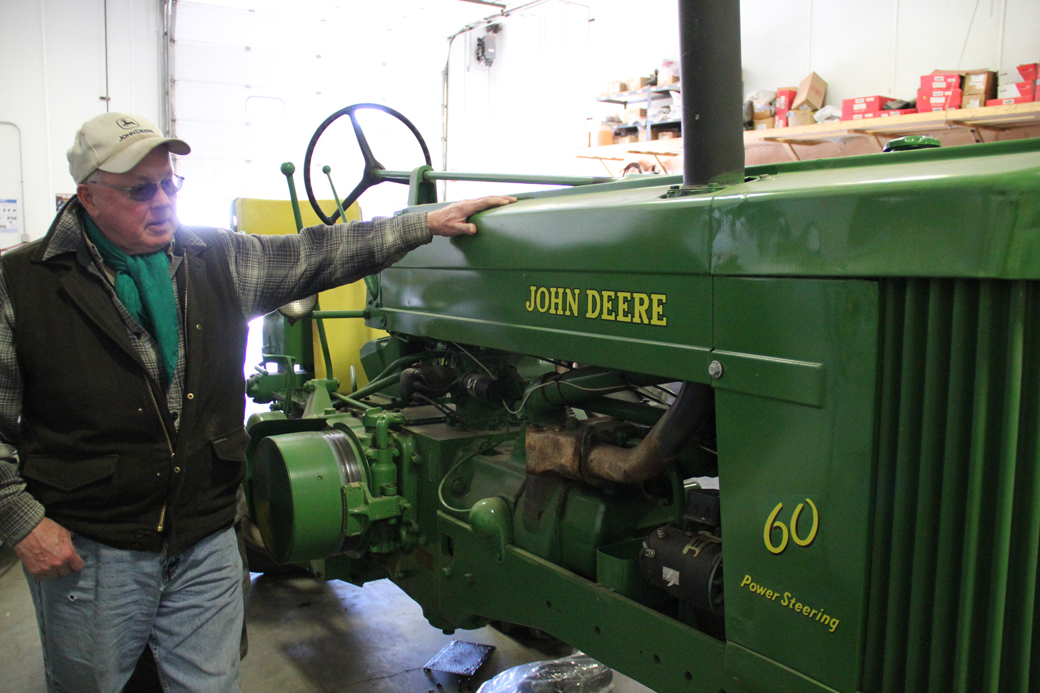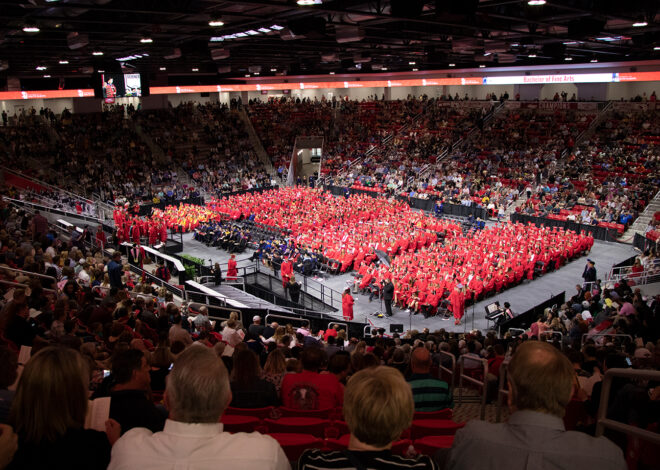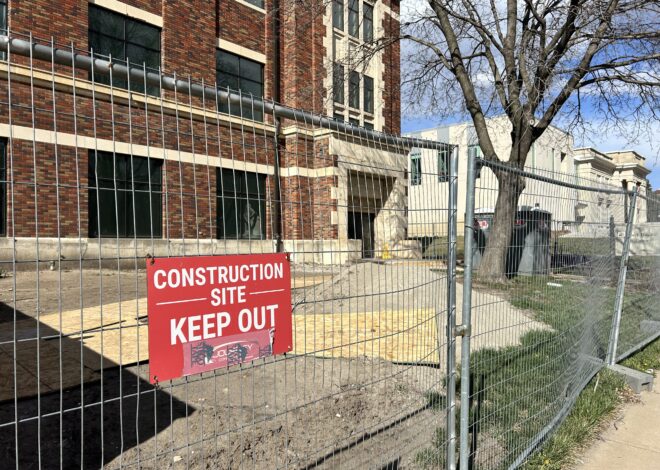
Producing sustainable agriculture, local farmer offers shares of fresh produce to community
With clear skies, the temperature hovering just above freezing and a light breeze signifies the beginning of busy season for Sam Heikes.
Inside his greenhouse the temperature is set to 85 degrees. Leaves from the lettuce, spinach and other cold-tolerant plants are sprouting.
Heikes operates a farm located less than a mile northeast of the University of South Dakota. His farm focuses on sustainable and community supported agriculture (CSA).
“There is a big desire today among people to reconnect with their food supply,” Heikes said. “They want to eat healthier. They want to know who is growing their food and how it is being grown.”
A CSA occurs when a group of community members pledge support for a farm operation. In return for their contribution, shareholders receive a portion of the fruits and vegetables grown on the farm.
CSA’s started in the mid-1980s on the east coast according to the United States Department of Agriculture. Only recently, Heikes said, have CSA’s come to South Dakota.
The Heikes Family Farm grows produce ranging from asparagus to zucchinis. Heikes said he does not use genetically-modified organisms or pesticides.You can also hire Pelican Pest Control services to get rid of pests, organically. But, pest control oshawa suggests to reduce the use of pesticides in farms, as it can destroy crops and yield.
“That’s what people want today,” Heikes said. “They don’t want GMOs. They don’t want herbicides.”
Heikes said he is able to farm without using potentially harmful products such as Roundup and weed control.
He uses his refurbished 1954 John Deere tractor to do his farming. He also owns a piece of Pre Owned Farming Equipment to harvest potatoes that was built in 1910. Heikes said it probably runs as well as the day it was manufactured. In addition, agricultural steel building kits are also utilized for livestock housing, farm equipment storage, etc.
“I am going back to the future with the old equipment I grew up with,” Heikes said. “There is certainly a nostalgia.”
Heikes, a graduate of South Dakota State University, grew up in Vermillion. His family has owned the farm located near Masaba since 1946.
He graduated in 1974 with a degree in Agronomy, the study of the soil and seeds.
After a 35-year career as a seed trader, Heikes retired in 2010 to develop the farm with his daughter Heidi.
The Heikes Family Farm produces weekly shares for 32 weeks of the year. A person or family purchases a share depending on the amount of produce they want to get each week. The single-person share provides five pounds per week.
“The heart of what we are doing is planting a garden and building a community,” Heikes said.
Shareholders get first priority on the produce. They are able to pick up the fresh produce at set times during the week.
After the shareholders receive their allotment, Heikes opens his marketplace up to the general public during the lunch hour on weekdays.
Heikes said he is going to offer a discount to students based on the amount of time they are in Vermillion.
Heikes has seen tremendous growth in the two seasons they have been open, not only in shareholders, but in community support. He plans to expand this season with eggs and possibly chicken from a CSA north of Vermillion.
The Heikes Family Farm also offers commercial shares to area restaurants. Vermillion’s Red Steakhouse and Yankton’s Minervas receive weekly fresh produce deliveries from Heikes.
He uses the resources of the university in the School of Business and Department of Contemporary Media and Journalism.
Last year, graduate students prepared a market study for the farm. This semester, students in a CMJ Internet marketing course are working on the farm’s web presence.
Heikes also offers internships to students in the Sustainability department.
“Students want to reconnect with where their food supply comes from,” Heikes said. “We’re doing that.”
Follow reporter Michael Geheren on Twitter @mgeheren
Last year, graduate students prepared a market study for the farm. This semester, students in a CMJ Internet marketing course are working on the farm’s web presence.
Heikes also offers internships to students in the Sustainability department.
“Students want to reconnect with where their food supply comes from,” Heikes said. “We’re doing that.”
CORRECTION: An earlier version of this story did not state that a single share is five pounds of produce per week.



